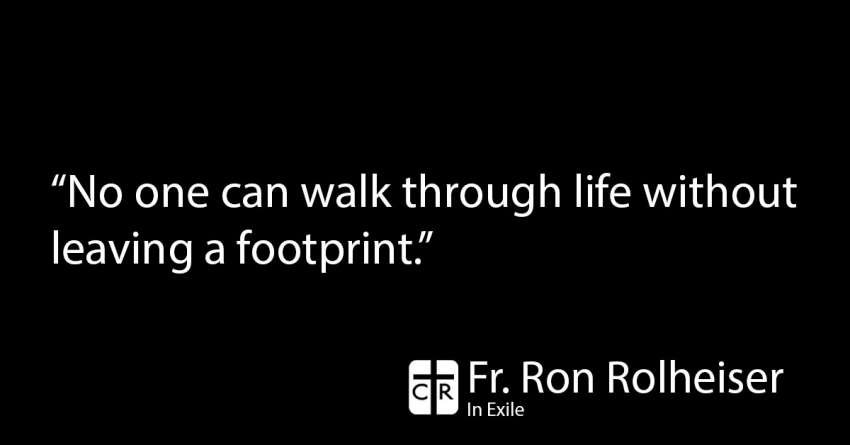Good wit, good insight! How glibly we distance ourselves from a problem, whether it is our politics, our churches, the ecological problems on our planet, or most anything else.
We aren’t, as we want to think, stuck in a bad political climate wherein we can no longer talk to each other and live respectfully with each other. Rather we ourselves have become so rigid, arrogant and sure of ourselves that we can no longer respect those who think differently than we do. We are a bad political climate and not just stuck in one.
Likewise for our churches. We aren’t stuck in churches that are too self-serving and not faithful enough to the teachings of Jesus. Rather we are Christians who too often out of self-interest compromise the teachings of Jesus. We aren’t stuck in our churches, we comprise those churches.
The same is true apposite the ecological challenges we face on this planet. We aren’t stuck on a planet that’s becoming oxygenstarved and a junkyard for human wastage. Rather it’s we, not just others, who are too careless in how we are using up the Earth’s resources and how we are leaving behind our waste.
Admittedly, this isn’t always true. Sometimes we are stuck in negative situations for which we bear no responsibility and within which, through no fault of our own, we are simply the unfortunate victim of circumstance and someone else’s carelessness, illness, dysfunction or sin. We can, for instance, be born into a dysfunctional situation which leaves us stuck in a family and an environment that don’t make for easy freedom. So, metaphorically speaking, we can be stuck in traffic and not ourselves be part of that traffic, though generally we are, at least partially.
Henri Nouwen often highlighted this in his writings. We are not, he tells us, separate from the events that make up the world news each day. Rather, what we see written large in the world news each night simply reflects what’s going on inside of us.
When we see instances of injustice, bigotry, racism, greed, violence, murder and war on our newscasts we rightly feel a certain moral indignation. It’s healthy to feel that way, but it’s not healthy to naively think that it’s others, not us, who are the problem.
When we’re honest we have to admit that we’re complicit in all these things, perhaps not in their crasser forms, but in subtler though very real ways. The fear and paranoia that are at the root of so much conflict in our world are not foreign to us. We too find it hard to accept those who are different from us. We too cling to privilege and do most everything we can to secure and protect our comfort. We too use up an unfair amount of the world’s resources in our hunger for comfort and experience.
As well, our negative judgments, jealousies, gossip and bitter words are genuine acts of violence since, as Nouwen puts it: Nobody is shot by a gun that isn’t first shot by a word. And nobody is shot by a word before he or she is first shot by a murderous thought: Who does she think she is!
The evening news just shows large what’s inside our hearts. What’s in the macrocosm is also in the microcosm.
And so we aren’t just viewers of the evening news, we’re complicit in it. The old catechisms were right when they told us there’s no such a thing as a truly private act, that even our most private actions affect everyone. The private is political. Everything affects everything.
The first takeaway from this is obvious: When we find ourselves stuck in traffic, metaphorically and otherwise, we need to admit our own complicity and resist the temptation to simply blame others.
But there’s another important lesson here. We are never healthier than when we are confessing our sins; in this case, confessing that we are traffic and not just stuck in traffic. After recognizing that we are complicit, hopefully we can forgive ourselves for the fact that, partially at least, we are helpless to not be complicit.
No one can walk through life without leaving a footprint. To pretend otherwise is dishonest and to try to not leave a footprint is futile. The starting point to make things better is for us to admit and confess our complicity.
So the next time you’re stuck in traffic, irritated and impatient, muttering angrily about why there are so many people on the road, you might want to glance at yourself in the rearview mirror, ask yourself why you are on the road at that time, and then give yourself a forgiving wink as you utter the French word, touché.
(Fr. Rolheiser can be reached at ronrolheiser.com)


